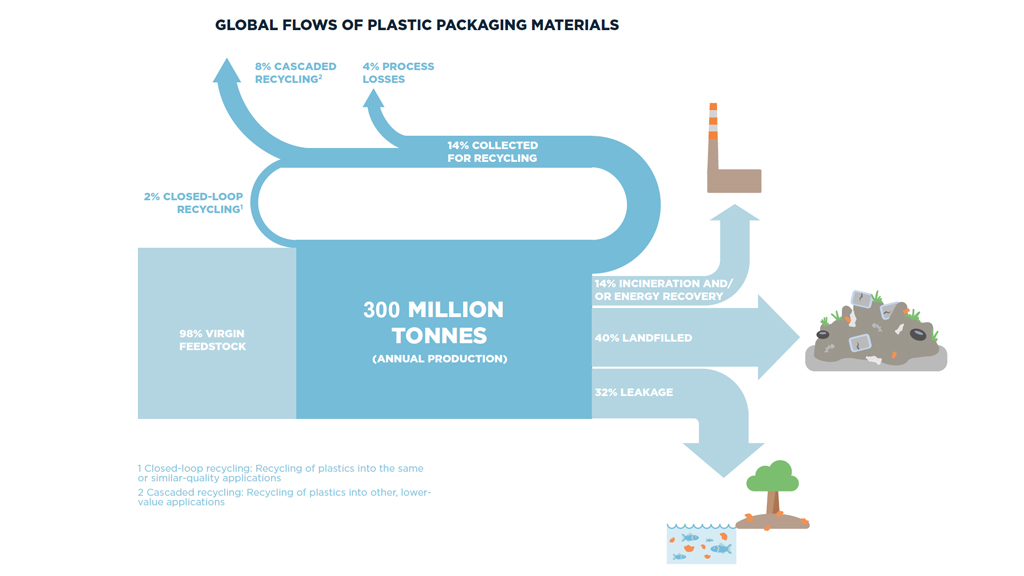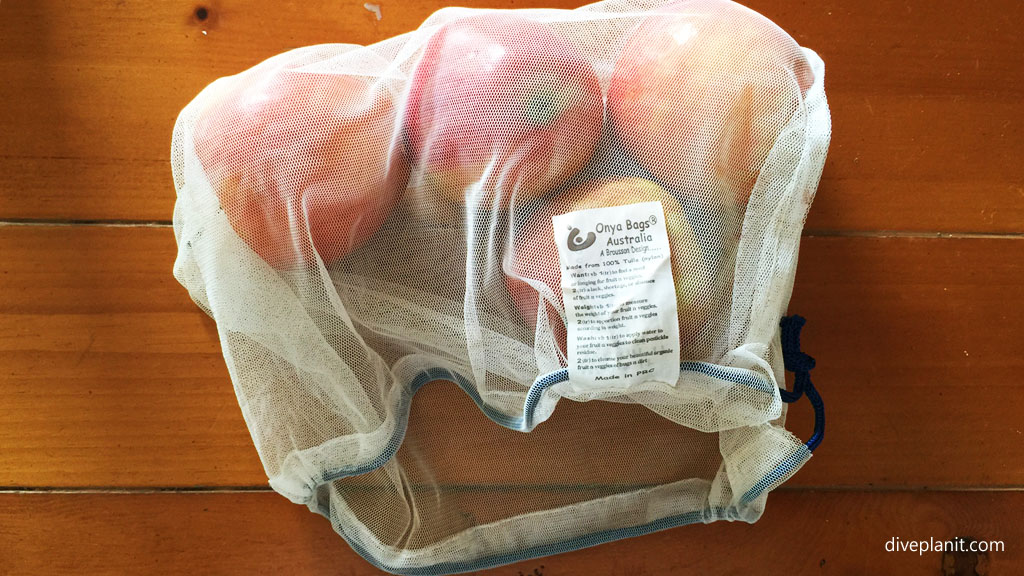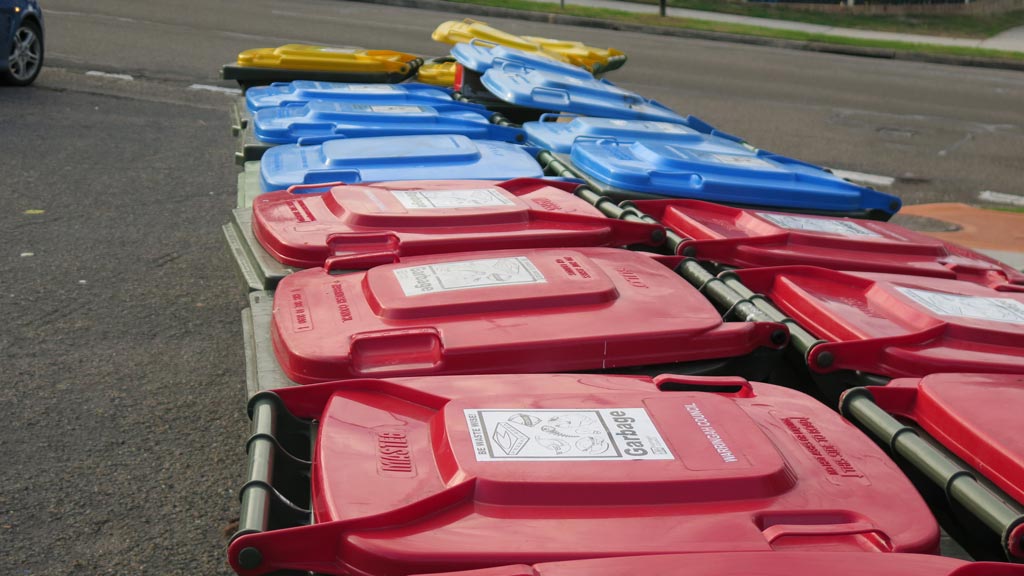WHY do we need to reduce our plastic use?
Because…
- so little plastic can be recycled,
- so much more is being produced,
- so very much more needs to be dealt with, and
- the leakage into the environment is now estimated at 80 million tonnes per year.
Here’s a little graphic from the Ellen MacArthur Foundation that shows just how little plastic is reused and how much leaks into the environment.
As population grows, and consumption grows it’s simply a numbers game. Take single-use plastic bags: in Australia, you might use only two per week, but that still amounts to 2,000,000,000 single-use bags each year. Plastic is not a bad thing – it’s our habits around single-use plastic items that is the problem. Here are six simple ways to reduce your use of single use plastic – that don’t require a lifestyle change.
1: Refuse straws
At a cafe, unless they are reusable glass, stainless steel or bamboo, or compostable paper straws just politely inform staff that no straw is required. Well that was easy!
2: Shopping bags
How hard can it be to remember to take shopping bags with you when you shop? Keep the big ones in the car, and a little one in your bag. If you find yourself at the checkout without a bag, fine yourself a dollar and buy a reusable one. Look out for boomerang bags – these are bags you can borrow – on the basis that you will not use a single use plastic bag.
3: Produce bags
An apple or even a bunch of bananas don’t need to be placed inside a plastic bag. Like most produce, they have skins that are either washable or are removed prior to consumption – finely developed by nature over 1000s of years. If you’re buying many items like beans or many apples – get some reusable produce bags.
Often you’ll find a bundle of produce reduced for quick sale – either pre-bagged in plastic, or worse on a plastic tray wrapped in more plastic shrink wrap: 6 slightly past their best small capsicums for the price of the one big one you intended to buy. You’d spend twice as long chopping up three small ones, and the others, plus all the plastic goes in the bin. Don’t be conned.
4: Keep cups
If you’re a ritual coffee drinker – and let’s face it, most of us are, simply get yourself a nice keep cup and make a statement every time you buy a coffee. Find your local Responsible Cafe – and reward them with your patronage. If your coffee breaks are random and ad-hoc, take a break, sit down and enjoy a coffee out of a proper cup. No time for that? If you need to be driving whilst imbibing, keep the keep cups in the car!
5: Bottled water and hence water bottles
Why buy bottled water when you can refill for free? Treat yourself to a colourful stainless steel water bottle. It’ll last forever, and its recently refilled contents will be healthier than water that’s been sat in a plastic bottle for who knows how long!
When you’re at a café or restaurant, ask for a glass of tap water. Set the expectation that you’re not going to pay for water bottled in plastic up the road when you can have water fresh from their tap for free.
6: Food packaging
When cruising down the supermarket aisles, select products in glass, metal, cardboard or paper packaging over plastic – all are infinitely recyclable and usually the product is better than the cheaper variety in plastic. Remember, only about 2% of plastic is actually properly recycled.
Two more Actions
Here are two more actions that will make a big difference.
- First: Don’t put your recyclables in plastic bags! It is one of the top recycling mistakes made by Australians: All recycling wrapped in plastic bags goes straight to landfill, as staff at sorting facilities are unable to open the bags for safety reasons!.
- Second: conversely, do ensure that your rubbish – which is likely to contain both plastic wrappers and food scraps – is securely bagged and binned in such a way that the bin is not overflowing and the lid closes. Otherwise a combination of birds and a simple breeze could release all that plastic back into the environment.
Here’s a little movie that will certainly make you think.
If you liked this post, you might also like our post on Bioplastics – and how they are NOT the answer.







